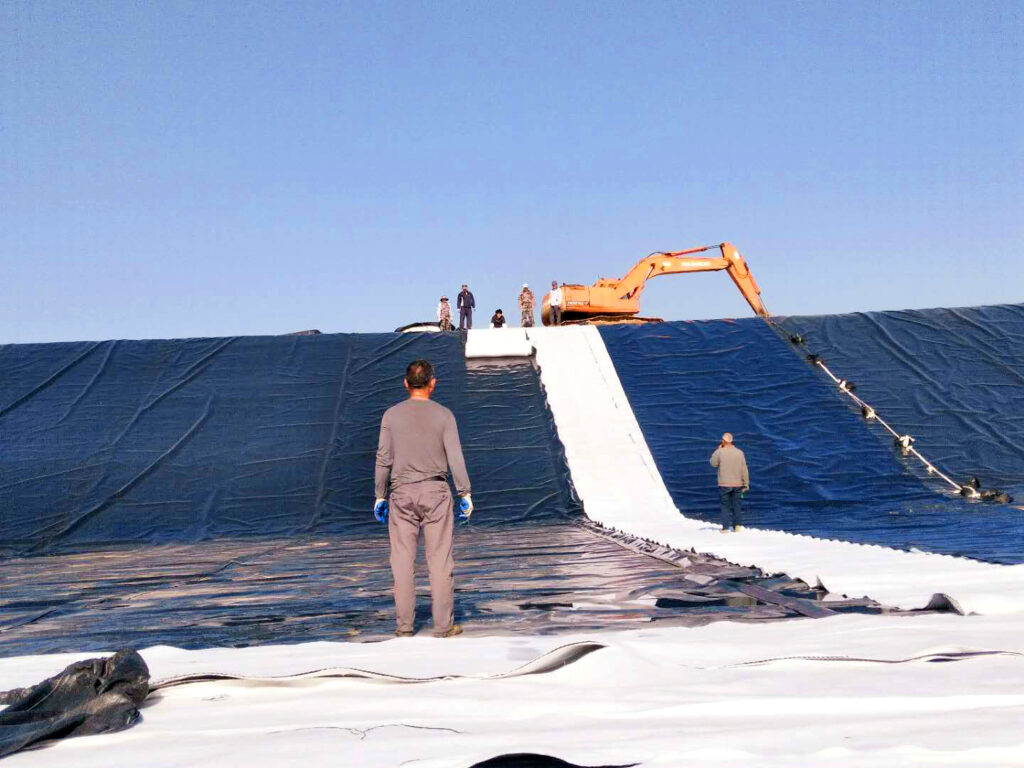Are pond liners toxic?
Pond liners are typically made from materials that are safe for aquatic environments and do not pose a significant toxicity risk. However, it’s essential to consider the specific type of liner material and any additives used in its production.
HDPE (High-Density Polyethylene): HDPE liners are commonly used for ponds and water features. They are considered safe for aquatic life because HDPE is a non-toxic and inert material. It does not leach harmful chemicals into the water.
EPDM (Ethylene Propylene Diene Monomer): EPDM rubber liners are also widely used in ponds and water gardens. EPDM is generally safe for aquatic environments and does not release toxins into the water.
PVC (Polyvinyl Chloride): PVC liners are less common for ponds due to concerns about their environmental impact. While PVC itself is not inherently toxic, it may contain additives such as plasticizers or stabilizers that can leach into the water over time. Some of these additives could potentially be harmful to aquatic life.
Reinforced Polyethylene or Polypropylene: These materials are also used for pond liners and are generally considered safe for aquatic environments. They are often reinforced with mesh or fabric for added strength and durability.
To ensure the safety of pond liners, it’s essential to choose liners specifically designed for aquatic use and sourced from reputable manufacturers. Additionally, proper installation and maintenance are crucial to prevent any potential risks to aquatic life. If you have specific concerns about the toxicity of a particular pond liner, you can consult with the manufacturer or seek advice from experts in aquatic ecology or environmental science.
What can pond liners be used for?
Pond liners are versatile materials that can be used for various purposes beyond just lining ponds. Here are some common uses:
Ponds and Water Features: This is the most obvious use. Pond liners are primarily designed to hold water in ponds, water gardens, fountains, and other water features.
Landscape Water Storage: They can be used to create reservoirs for storing rainwater or irrigation water in landscapes or gardens, helping in water conservation efforts.
Aquaculture: Pond liners are essential in aquaculture for creating artificial ponds or tanks for fish farming or other aquatic organisms.
Waterproofing: Pond liners can be used for waterproofing applications in various construction projects, such as lining basement walls, roofs, or foundations to prevent water seepage.
Decorative Pools: Liners are commonly used in decorative pools, such as koi ponds or garden pools, to maintain water levels and prevent leaks.
Landfill Liners: In waste management, pond liners are sometimes used as part of landfill liners to prevent leachate from contaminating groundwater.
Biogas Digesters: Liners can be used in biogas digesters, which are systems used to produce biogas from organic waste. They help contain the slurry mixture and capture the biogas produced.
Erosion Control: Pond liners can be used in erosion control projects to prevent soil erosion by containing water runoff.
Industrial Applications: They are used in various industrial applications, such as lining tanks or reservoirs for storing chemicals or other liquids.
Artificial Streams or Wetlands: Pond liners can be used to create artificial streams or wetlands in landscaping projects, providing habitats for wildlife or aesthetic features.
Recreational Use: Liners are used in swimming ponds or natural swimming pools for recreational purposes.
Temporary Water Containment: They can be used for temporary water containment during construction projects or events.
Overall, pond liners offer a versatile solution for various water containment and waterproofing needs across different industries and applications.
近期文章
Author
-

Founded in 2002, Tinhy's team focuses on the manufacturing, marketing, installation, application and research and development of geosynthetic materials.
View all posts

